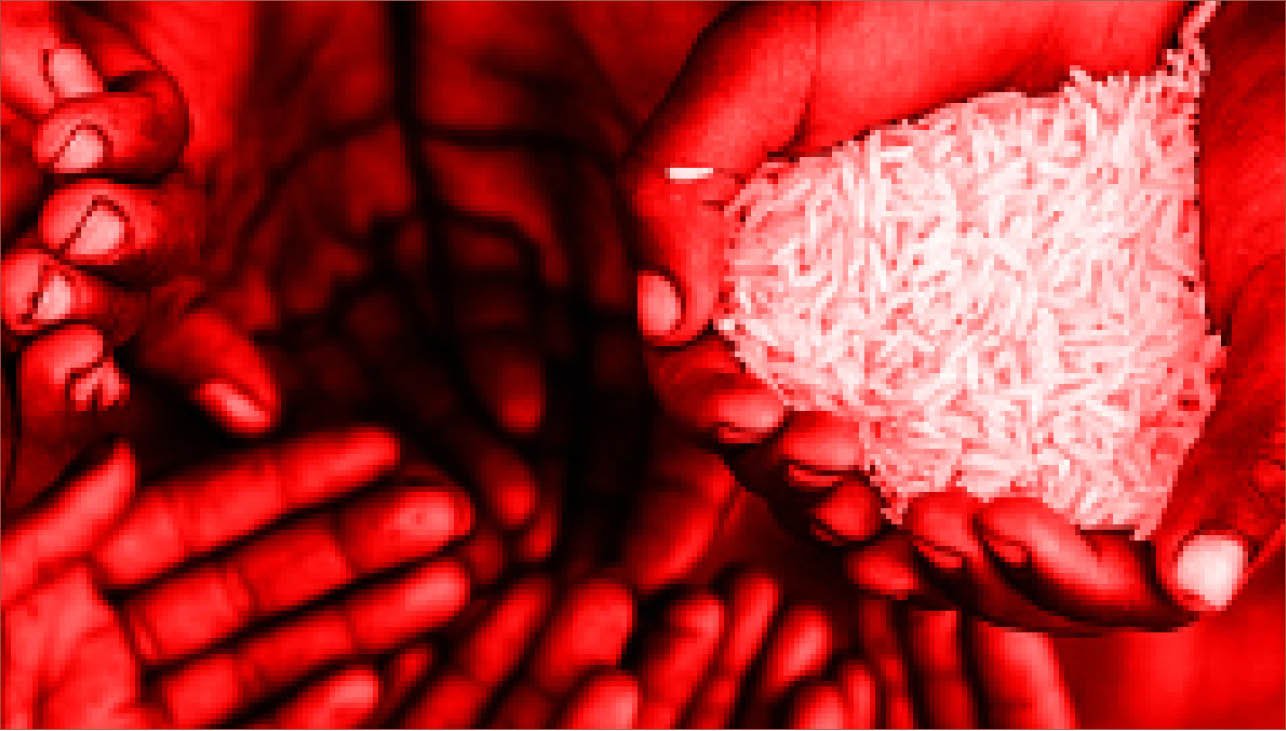“Allah ro….”
“Ko mai sanyi nai”
“Ko gaya ba miya…”
“In da rabo….”
It’s a quiet night. The type of eerie silent Harmattan evening and my gate has since been locked. The Imam has concluded the night prayers (Isha) in the neighbourhood mosque and as agreed, closed the doors for the night. These young boys have nowhere to go. There is hunger in their bellies and the dry, cold wind seems to fan the ebbs of starvation even more. You know how it is; the way our appetite for food and snacks increases during the cold season and is replaced by thirst in the heat. It is the same with these children, except for them, they have nothing to snack on. Food is a luxury. And in Northern Nigeria, they have to sing for it.
The song resonates across the area, the voices carried along loudly into the night, piercing our consciences. One by one, doors are opened, and left-over food is scraped unto their dirty bowls. Half-eaten balls of Tuwo, shards of rice or pasta, sometimes even yam or potatoes.
- Issues as APC holds make or mar convention today
- Damage on APC will require extra efforts to fix – Sen Kaita
‘Allah ya saka!’ They chant before running of into the night in groups of two or three or four. Willing to share with each other the morsels they have been given. A little here, a little there. And before you know it, they have filled their stomachs and run to their shelter to sleep.
On this night, as I heard the lyrics of what had become their national anthem, I succumbed to their cries and went downstairs to investigate. It was a young boy who looked to be about six or seven years. Strangely, he was alone but he explained to me that it was because of his limp that the other boys had left him. While he was eating, I noticed his large forehead and thin body frame. He also had the characteristic abdominal swelling and scaly, ring like lesions on his scalp. Alarm bells rang off in my head and I asked how old he was and why he was limping. He answered knowingly, what was apparently common knowledge to my neighbours yet news to my naïve ears:
‘I am thirteen years old and I limp because I have had a wound on my leg for the past three years’.
He lifted his tattered trousers and showed me the shin of his left leg. The lower third of the leg was noticeably thinner and had a small round opening which was actively oozing yellow pus. Chronic osteomyelitis flashed in my mind. In Nigerian pidgin: My body just weak.
‘Do your parents know?’
He looked at me dryly and continued eating.
‘Yes’ he mumbled between swallows.
Dear God, there has to be a special place in hell for the parents of children like these who send them off to fend for themselves. There is no way anyone can convince me otherwise. Like many other Almajiris, he had the tell-tale signs of malnutrition which was further worsened by his osteomyelitis. In plain English- this meant he had a long-standing infection which had destroyed the bone in his leg. Judging by the discolouration of the leg, he would most likely need strong IV antibiotics and amputation of the limb. I continued to ask him questions while he ate. He did not seem to mind my probing as he narrated to me the story of his family; his father was a local barber in a rural village in Kano with three wives. He was the sixth of eight children, four of whom were currently ‘almajirai’. His other brothers were in other cities, one had travelled as far as Kebbi. They met every year during the ‘small’ sallah celebrations in their hometown. Food was not always available at home. Here in Kano, their Mallam did not feed them. When he joined the local tsangaya, eight years ago, he was taught how to beg for alms and food by the older boys. So perfect were they in the art of begging, that they knew the ones who would dish out money immediately. Persistence is key, they told him. Sing loud enough and long enough and the woman of the house was likely to cave in. They showed him which houses in the neighbourhood gave out food regularly, which houses had the tastiest dishes and which houses to avoid as they would make him work before giving him food. When begging in houses, target widows they said; they have a softer heart.
In traffic, they showed which cars to avoid; the old beat up cars, those ones have nothing to offer. The flashier the better. If it is a woman driving, even better. If there are children in the car, your chances are higher! Press yourself to the car door and make a sad face. Squeeze a few tears. If the windows are up and the people in the car can’t hear you, raise your fingers to your mouth to show them you are hungry, loose change will definitely come your way. Race for it if it is thrown and do not share with anyone. The latter advice was very important.
I wanted to know if he ever had enough food. He shook his head sadly.
He was always hungry. In the morning, afternoon and evening. It did not matter that he may have eaten, there was always a small pang in his stomach before he slept. The hunger had eaten deep into his soul. His skin hung off his bones and his feet appeared swollen. I touched them. Yep. Protein Energy Malnutrition. Micro nutrient deficiency. The whole works.
Fruits? Vegetables? I asked. Sometimes. Occasionally, they would get lucky and be given rice with some lettuce and tomatoes on Fridays. Sometimes they would get lucky and get a piece of meat during wedding celebrations. They were always on the lookout for weddings and funerals. If someone in the area died, the almajirai would immediately tell each other as it was almost guaranteed that for the next three days, if they hung around close enough, food would certainly come. Death was an occasion they celebrated.
I asked when the last time was that he had not, begged for food. That food was given willingly and as at when due. He could not remember. He was so used to singing for it, it did not occur to him that it was not a luxury. That food is a necessity that need not be begged for.
I could not talk to this boy about the concept of malnutrition, stunted growth and its complications. I could not tell him that Nigeria has the second highest burden of stunted children in the world with a national prevalence rate of 32 per cent of children under five. It was futile to tell him that he was part of the estimated 3 million children in Nigeria who suffered from severe acute malnutrition (SAM). Of what good would that do?
I stared at his young body ravaged by malnutrition. Where do I start from? Him? His mallam? His parents? Brothers? Family? Society? And for how long? What about his leg? How could he cope?
With each bottle neck came the realization that the only thing I could probably do was to help with his singing. It is not much, but at the very least, I can make sure he never sings for food again.

 Join Daily Trust WhatsApp Community For Quick Access To News and Happenings Around You.
Join Daily Trust WhatsApp Community For Quick Access To News and Happenings Around You.


